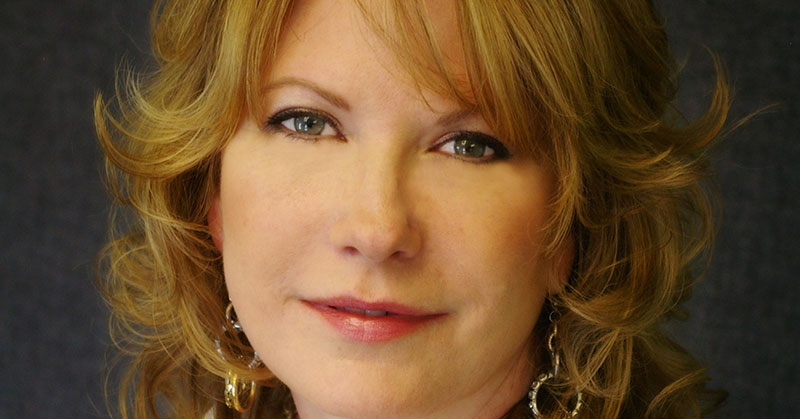Balancing Act: Raising a Special Needs Child from the C-suite

Early in her career, Barbara Moran-Goodrich, CEO of the Moran Family of Brands, was fired from her job as controller at Moran Industries--by her own father, who had founded the company. He believed his intentions were good. His timing was not.
"I wish you would have let me know before I bought a house and had a baby," she told him. Yes, those were different times, and she knows that in his mind he meant well, but still...
"A lot of people will say, 'Okay, that's unacceptable.' And it is unacceptable in the workplace. But in the 1980s, that was not unheard of. Many women had to make career choices between families or their career. And many times it derailed their career, or they would make decisions to push having a family back, just to be able to continue forward in their career."
And while some things change, some don't. "My father, when I bring it up to him today, still feels he was doing the right thing in wanting me to be at home with my daughter. And I can understand from his perspective. But that wasn't fitting into what I wanted in life."
After being fired, Moran-Goodrich stayed home for three or four months with her daughter, busying herself with arts and crafts projects and a garden. "Then I started a career working in the government for a time. My father was furious because he thought he was doing me a favor by firing me, and I was thinking, 'Seriously, I have to pay my bills.'"
She landed a job working as a legislative aide to Jane Barnes, a state representative in Illinois and a pioneering woman in Chicago-area politics who spent 18 years in the Illinois House until her retirement in 1993.
"Jane helped me to understand the good old boy network, the glass ceiling. I learned it was all about respect and follow-through. She showed me that no matter what the barriers, there is a way around them," says Moran-Goodrich. Those include hard work and continually educating yourself, she says, recalling how she canvassed voters in Barnes's suburban Chicago district with her baby daughter in a backpack. That experience would come in handy in 1999 when she became president of Moran Industries and began visiting franchisees to learn what they were thinking about the company.
Eventually, her father asked her to return to the company he'd founded--and which she'd grown up in. She returned to Moran Industries when her daughter was 3. However, her job required her to travel, not an easy thing for a mother with a young child.
When her daughter was 5, Moran-Goodrich gave birth to a second child, a son. Four years later, she became president of Moran Industries--something her father didn't want to happen. He believed that being a woman limited her abilities to lead a predominantly male automotive franchise system.
But in the late 1990s, when her father had to step back from the business for health reasons, she was not being considered for any key leadership positions at the company. However, when the person chosen to replace him didn't work out, they hired a management consultant to find the best person for the job. The conclusion? She was the best person to run the company. "I knew I could do it, but it obviously wasn't in anyone else's plans," she says.
"It wasn't something that I'd prepared for, because I was told I was never going to be in that position," she says. However, she adds, "My ability to move up in my career had a lot to do with my tenacity, my desire to learn, and my willingness to take on any project or task thrown at me. I didn't wait for the opportunity, I just went and pushed forward by educating myself. No matter what you're doing, keep learning, keep pushing forward and don't accept no for an answer. And eventually, over time, people will notice. Whatever career path you've chosen, if you just keep focusing on your opportunities, rather than the roadblocks, you will succeed."
When she took over as president, Moran Industries had approximately 120 units. The company grew during her tenure and then had losses during the economic crisis. In July 2010, she purchased the company from her parents, who were majority shareholders, and renamed it to reflect the different brands it offered. Today the Moran Family of Brands includes Mr. Transmission, Milex Complete Auto Care, Alta Mere Automotive Outfitters, SmartView Window Solutions, Dr. Nick's Transmissions, and Multistate Transmissions, with 140 units across all the brands.
Family challenges
By the time she returned to her father's company, she'd given birth to her son, five years younger than her daughter. "I realized it was important to show my children you could still be you. You don't have to give yourself up to have a family. You always will give up parts of yourself, that's part of love. If I wasn't at work, I was at home. Those are the things you do. I was exhausted, but I wanted to be there."
With her daughter in school, Moran-Goodrich visited regularly as "Art Mom" and "Computer Mom." However, when she tried to do that with her son, it was different. "Every time I showed up, he had a meltdown. I couldn't do that with him. It was disheartening."
As Moran-Goodrich navigated the challenges of life in the C-suite, at home she was dealing with a problem much larger than gender stereotypes. Her son had been diagnosed with PDD-NOS (Pervasive Developmental Disorder-Not Otherwise Specified). Psychologists and psychiatrists use the term interchangeably with autism spectrum disorders (ASD). It is not medically detectable and the symptoms are usually difficult to discern until a child is two or three years old and begins acting out.
At the time, PDD was used as a catch-all term for children with something going on within the autistic spectrum. According to Autism Speaks, "Like all forms of autism, PDD-NOS can occur in conjunction with a wide spectrum of intellectual ability. Its defining features are significant challenges in social and language development." Further, "autism spectrum disorder (ASD) and autism are both general terms for a group of complex disorders of brain development. These disorders are characterized, in varying degrees, by difficulties in social interaction, verbal and nonverbal communication, and repetitive behaviors." Those behaviors range from minor to severe, which can include doing physical harm to oneself or others.
When she was named president, her son was four and, she says, severe in his spectrum-related behavior. This put additional strain on Moran-Goodrich at home, just as she was learning the ropes in her new role as president.
"We did not do well at trying to work it out together. It was not our son's disability. We were too naive and immature to understand how we needed to work together," she says. "More often than not, one carries the load more than the other. It's really not easy to manage this. We weren't prepared and didn't know where to turn."
Her marriage didn't survive, but Moran-Goodrich says that it had nothing to do with their son's disability and everything to do with maturity in the marriage. Raising a child with special needs is significantly more stressful than the pleasures and pains of raising a neurotypical child, but it's up to the parents, as adults, to manage the situation--and themselves.
"It goes back to the first time my son showed signs. There should have been some support structure to show us how to work together," she says. But that was a lot harder to find then than it is today.
Building a support network
In the nearly two decades since her son was born, autism awareness and education has skyrocketed, along with the sharp increase in the number of children diagnosed with ASD, much more commonly found in boys than in girls. In the United States today, 1 in 68 children is on the autism spectrum, up from 1 in 88 just a few years ago, according the Centers for Disease Control and Prevention (CDC). According to CDC studies, the figures for children with autism were 1 in 150 in 2000 and 2002, 1 in 125 in 2004, 1 in 110 in 2006, and 1 in 88 in 2008 (the CDC surveys 8-year-olds every two years). While it's important to note that these numbers are estimates, that diagnosis is not an exact science, and that with increased awareness comes increased reporting, for whatever reasons the occurrence of ASD in the USA continues to rise among both children and adults.
After the divorce, says Moran-Goodrich, "I put aside the whole aspect of having a relationship for many years. My priority was my children and my work. If I'd had a husband it would have been easier sharing the responsibilities, but that was not the case." Instead, she had to make do as a single mother of two children, one with special needs, which placed demands on her far beyond what most parents face. "It's not just about being a mother or a parent with a child, it's also about the fact of having a child with a disability," she says.
With the demands of her job, Moran-Goodrich knew she couldn't handle it all on her own. She managed by learning as much as she could about her son's disability and by creating a strong support system that included her best friend, her brother and his wife who lived nearby, along with the usual cadre of babysitters, therapists, doctors, and teachers.
Additional help came from her daughter, who became a kind of "second mom or mini-me" to her younger brother--which is why, many years later, when it came time for her daughter to apply for college, she and her mom agreed it would be best for her to attend college far enough away so she would not feel compelled to come home and help, and begin to embark on building a life of her own.
"I wanted to give her the opportunity to be her own child. Having a child with disabilities, you inadvertently focus on them," says Moran-Goodrich. "I tried to make it work, and I hope I was there to the level my daughter needed me to be. I believe I was. We have a strong, good relationship," she says. Today her daughter, 24, has graduated college and lives in Southern California.
However, it wasn't easy for the independent-minded mother and executive to assemble the support team she needed. But she had to. "Many women who have a drive for succeeding have a difficult time asking for help. I know I'm guilty of it. You have to do what is uncomfortable and ask for help," she says. "Looking back, I just couldn't make all those appointments for my son." Those included doctors, therapists, and after-school activities, including dance for her daughter and football for her son. "You learn to make it work."
On a recent flight, Moran-Goodrich sat next to a woman who worked in the building and construction field. They were about the same age, and she also had been a single mother for years. "We talked about what we called 'having a wife.' I know it's not PC, but for us having a wife meant having a nanny or a child care provider who is able to be there for your child when you can't or when you're on the road, helping them with their homework, doing the laundry, taking care of the house, putting food on the table, and running the errands. Because those are things that you're not going to be able to do. And you can't try to fit them in, because if you do, then you're taking time away from your family.
"It was really good to hear from another woman in a totally different industry about the challenges she goes through, or has gone through, that were very similar to my own. It was really interesting because her son has sensory problems that create issues in learning, similar to my son. So we talked about that too."
And it's not just about women, she says. "Men are falling into this role too. Now both parents are working and there are many single parents who have to juggle work and family." For parents in these situations, she says, it's essential to build a supportive community and learn to communicate regularly with all involved--much easier today than before smartphones and video chats.
First mentor
Her mother, says Moran-Goodrich, played a huge role in her development as a person and in business. "She was the matriarch, she took care of everything. She was my first and original mentor. She taught me that you can have a family and you can have a career. My mother was my father's partner. She was co-founder with him. I always have to remind him of that!" she says with a laugh.
"She taught me a great deal about being there for family, but also about having some time for yourself. When I was growing up and as a young adult, she took me under her wing and taught me how to manage money. She's the one who helped me learn how to take advantage of every opportunity available to me. She was the one who said, 'If you have the opportunity to learn, then take it.'"
The lessons began early. "When I was a kid, she would do the books for my dad. My dad was always starting new businesses, and she was always the back end. I think I was 12 years old and she wanted me to help her. She'd give me about 100 time cards and wanted me to total them up and figure out peoples' pay. I had no idea what I was doing. And she'd say, 'C'mon, you can do it.'"
Becoming a mother, says Moran-Goodrich, has helped her grow as a CEO. "It gave me skills that I don't know I would have gained if I hadn't become a parent. It taught me, first of all, patience," she says. "Once I had children, it became easier for me to see that I couldn't have everything the way I wanted. I had to see things from their perspective. I had to learn to look at things from different viewpoints. That may not have been something I would have done if I hadn't had kids." Parenting, she says, means learning to recognize that you can't have everything your way, and to pick your battles and negotiate on the rest.
Moving forward
Her son, she says, always knew that his actions were off, but he could never control and stop them. "Our kids really struggle with this, knowing it's creating difficulties." Today, he's told her that he would like to visit different schools and speak to kids who fall in his spectrum about the things he's learned over time.
"He feels it's important to know that they, too, can overcome disabilities," says Moran-Goodrich. "We're in a much better place, every year we improve, and he wants other people, especially children who have PDD or Asperger's or any type of spectrum of autism to know that they can move forward in life."
Share this Feature
Recommended Reading:
FRANCHISE TOPICS
- Multi-Unit Franchising
- Get Started in Franchising
- Franchise Growth
- Franchise Operations
- Open New Units
- Franchise Leadership
- Franchise Marketing
- Technology
- Franchise Law
- Franchise Awards
- Franchise Rankings
- Franchise Trends
- Franchise Development
- Featured Franchise Stories
FEATURED IN

Franchise Update Magazine: Issue 1, 2015








 The franchise listed above are not related to or endorsed by Franchise Update or Franchise Update Media Group. We are not engaged in, supporting, or endorsing any specific franchise, business opportunity, company or individual. No statement in this site is to be construed as a recommendation. We encourage prospective franchise buyers to perform extensive due diligence when considering a franchise opportunity.
The franchise listed above are not related to or endorsed by Franchise Update or Franchise Update Media Group. We are not engaged in, supporting, or endorsing any specific franchise, business opportunity, company or individual. No statement in this site is to be construed as a recommendation. We encourage prospective franchise buyers to perform extensive due diligence when considering a franchise opportunity.